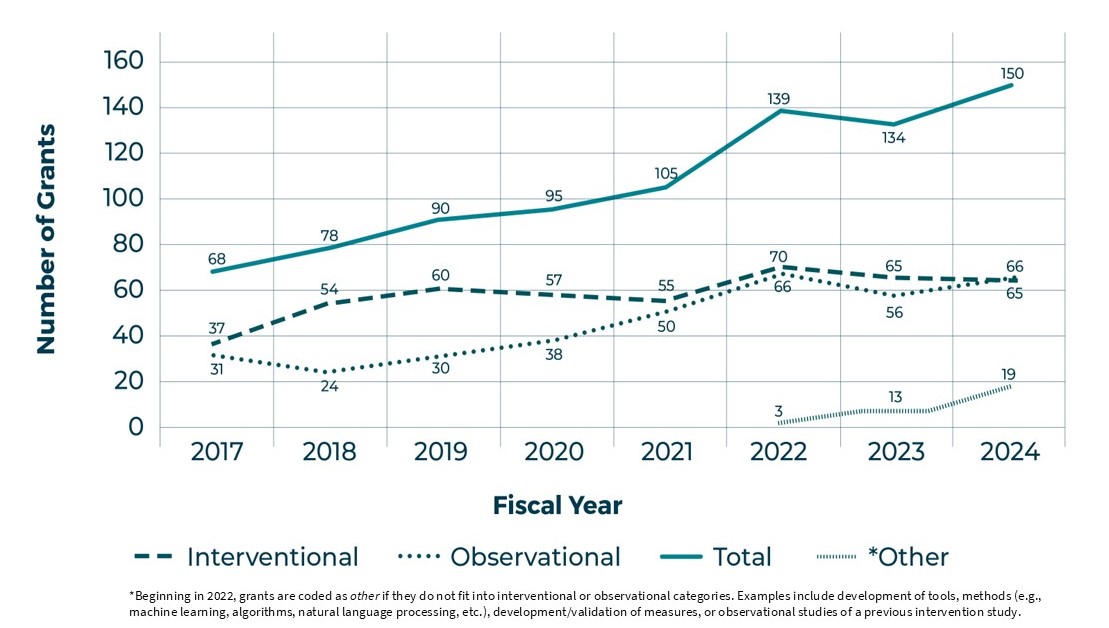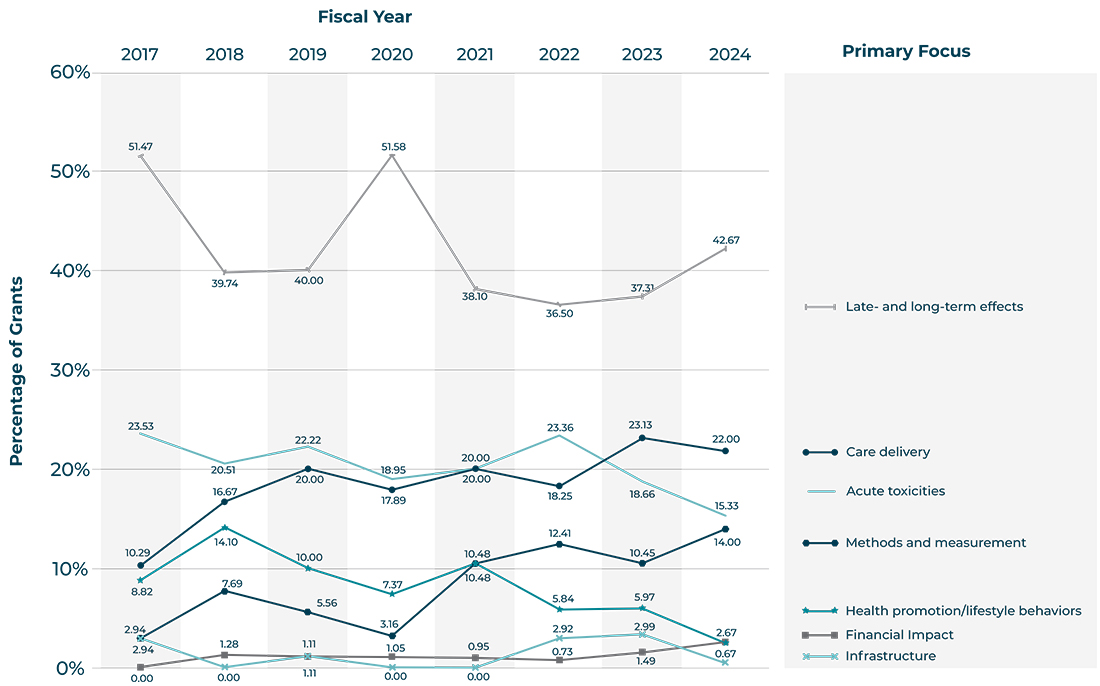Survivorship research includes efforts to understand, prevent, and mitigate acute, long-term, and late-occurring physical, psychological, social, and economic effects of cancer and its treatment, improve care delivery, promote healthy behaviors, develop and sustain research infrastructure, and improve research methodologies for those impacted by cancer. This section provides information and characteristics of NIH survivorship grants funded over the past several years.
Number of Cancer Survivorship Grants
The graph below shows the number of interventional and observational grants, as well as total grants newly funded by NIH from FY 2017 through FY 2024.

Starting in 2021, the portfolio was expanded to be inclusive of the breadth of the survivorship research.
Percentage of Cancer Survivorship Grants by Primary Focus Area
This graph shows the percentage of grants awarded by NIH from FY 2017 to FY 2024 within each primary focus area.

Starting in 2021, the survivorship research definition was expanded from post-treatment research only to include survivors from diagnosis forward, including people living with advanced and metastatic cancers.
Doose M, Mollica MA, Acevedo AM, Tesauro G, Gallicchio L, Reed C, Guida J, Maher ME, Srinivasan S, Tonorezos E. Advancing health equity in cancer survivorship research: National Institutes of Health 2017-2022 portfolio review. J Natl Cancer Inst. 2024 Aug 1;116(8):1238-1245.
Gallicchio L, Mollica M, Tesauro G, Doose M, Guida JL, Maher ME, Tonorezos E. Rare cancer survivorship research funding at the National Institutes of Health (NIH), 2017 to 2023. Cancer Causes Control. 2025 Jun;36(6):587-594.
Mollica MA, Tesauro G, Gallicchio L, Guida J, Maher ME, Tonorezos E. Survivorship science at the National Institutes of Health 2017-2021. J Cancer Surviv. 2024 Oct;18(5):1443-1452.
Mollica MA, Tesauro G, Tonorezos ES, Jacobsen PB, Smith AW, Gallicchio L. Current state of funded National Institutes of Health grants focused on individuals living with advanced and metastatic cancers: a portfolio analysis. J Cancer Surviv. 2021 Jun;15(3):370-374.
Tonorezos E, Mollica M, Tesauro G, Gallicchio L, Guida J, Maher ME, Hudson SV. Primary care for cancer survivors: a review of national institutes of health-funded grants 2017-2022. J Cancer Surviv. 2024 May 31.

